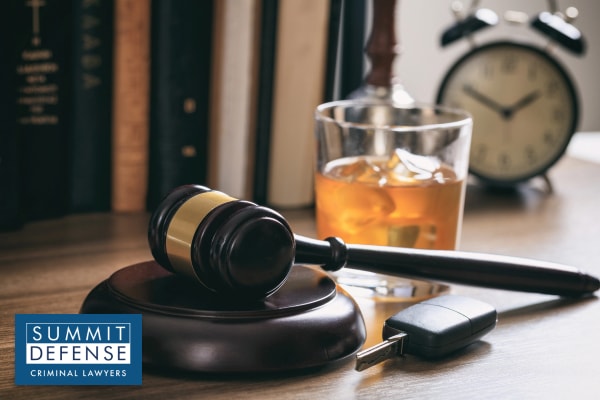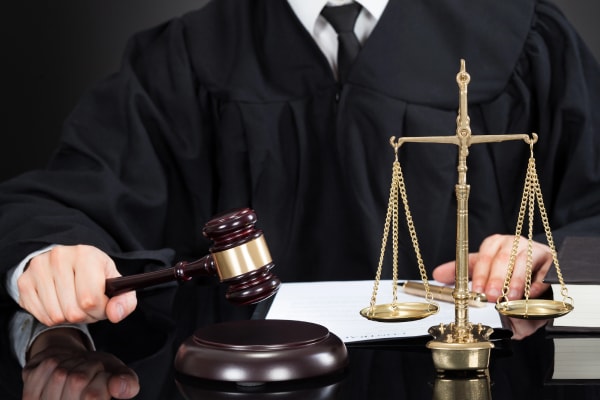Stages of a DUI Court Hearing
The DUI court process typically involves several stages. Each step plays a role in determining the outcome of your case. Here’s a breakdown of the major stages you will go through:
- Arraignment: The first stage where you formally enter your not-guilty plea or discuss your case with the judge.
- Pretrial conference: A meeting where your defense attorney and the prosecutor may discuss the case, evidence, and possible plea deals.
- Motions hearing: If necessary, your defense attorney may file motions, such as a motion to suppress evidence, if there are issues with the arrest or evidence collected.
- Trial: If a plea bargain isn’t reached, the case will go to trial. Both sides present their evidence and witnesses.
- Sentencing: If convicted, the judge will impose penalties such as license suspension, fines, or jail time.
The Arraignment (First Court Appearance)
The arraignment is your first DUI court appearance. It’s where you formally enter your plea, either not guilty, guilty, or no contest. The judge will explain the charges against you, the potential penalties, and your rights. If you’re unsure of how to proceed, an experienced DUI attorney will advise you on whether you should plead guilty or challenge the charges.
In many cases, the defense attorney will request a delay to gather more information or negotiate with the prosecutor. You’ll also discuss bail or release conditions if you’re in custody. The arraignment sets the stage for the rest of the court process. It’s a crucial step, so having a skilled DUI lawyer present can make a huge difference in the outcome of your case.
The Pretrial Conference
 The pretrial conference is a critical stage in the DUI court process. During this meeting, your defense attorney and the prosecutor will discuss the case in detail. They’ll review the prosecution’s evidence and any motions that may have been filed. This is also the time when both sides may discuss the possibility of a plea bargain. If you choose to plead guilty, this stage allows you to negotiate a reduced sentence or lesser charges, depending on the circumstances.
The pretrial conference is a critical stage in the DUI court process. During this meeting, your defense attorney and the prosecutor will discuss the case in detail. They’ll review the prosecution’s evidence and any motions that may have been filed. This is also the time when both sides may discuss the possibility of a plea bargain. If you choose to plead guilty, this stage allows you to negotiate a reduced sentence or lesser charges, depending on the circumstances.
In some cases, the defense attorney may request additional time to gather more evidence or subpoena witnesses. If there are discrepancies in the police reports or field sobriety tests, your attorney may file a motion to suppress evidence.
This could potentially weaken the prosecution’s case and improve your chances of a favorable outcome. The pretrial conference is also the time when the judge may set further court dates or give orders related to the case.
DUI Motions Hearing (If Needed)
If there are issues with the way the DUI arrest was handled, a DUI motion hearing may be necessary. This hearing focuses on challenging evidence before the trial begins.
For example, if the police officer did not have reasonable suspicion to stop you, your defense attorney can argue that any evidence gathered during the arrest should be excluded. A motions hearing is where your lawyer might challenge field sobriety tests, breath tests, or blood test results based on how they were conducted or the accuracy of the breath test machine.
If your DUI defense attorney can show that the evidence was obtained improperly, the judge may rule to suppress evidence. This can be a significant victory in your case, as it could weaken the prosecution's argument.
If a critical piece of evidence is excluded, it can lead to the dismissal of DUI charges or a plea deal for lesser penalties. The DUI motions hearing helps ensure that only legally obtained evidence is used in court.
The DUI Trial (If No Plea Deal is Made)
 If no plea deal is reached, your DUI case will go to trial. This is where both sides present their arguments and evidence. The prosecution will attempt to prove that you were driving under the influence, while your DUI defense attorney will work to create reasonable doubt about your guilt. The trial will begin with the prosecution’s evidence, followed by the defense’s case.
If no plea deal is reached, your DUI case will go to trial. This is where both sides present their arguments and evidence. The prosecution will attempt to prove that you were driving under the influence, while your DUI defense attorney will work to create reasonable doubt about your guilt. The trial will begin with the prosecution’s evidence, followed by the defense’s case.
Your attorney may challenge the police officer’s testimony or point out any weaknesses in the evidence, such as errors in the breath test or field sobriety tests. If the prosecution's evidence doesn’t convincingly prove the DUI offense, you may be acquitted. The trial can take time, but it is your opportunity to clear your name or negotiate for reduced charges.
How a DUI Trial Works
A DUI trial typically involves several key steps. First, the judge will instruct the jury about the DUI charges. Then, the prosecution presents its evidence, including testimony from the arresting officer and police reports.
After that, your DUI defense attorney will have the opportunity to cross-examine the witnesses and present your case. This may involve calling witnesses who can help prove your innocence or weaken the prosecution’s evidence.
During the trial, your attorney might argue that the police officer lacked reasonable suspicion or that the field sobriety tests were unfairly administered. If your defense attorney can create reasonable doubt, you may be found not guilty. If the case isn’t dismissed, the jury will determine the verdict based on the evidence presented.
A DUI conviction could lead to license suspension, fines, or jail time, so it’s essential to have a seasoned DUI lawyer to guide you through the process.
Sentencing (If Convicted of DUI)
If you are found guilty of a DUI offense, the next step is sentencing. The judge will consider several factors, including the severity of the offense, whether it was your first DUI, or if there were aggravating factors like a high blood alcohol content(BAC) or an accident.
The judge will then impose penalties based on DUI laws in your state. Sentencing may include fines, license suspension, probation, or jail time. The judge may also require you to attend DUI education programs or install an ignition interlock device on your vehicle.
In some cases, the judge may offer alternative sentences for first-time offenders, such as probation or a reduced license suspension. However, if there were aggravating circumstances, like repeat offenses or driving with a minor, the penalties could be more severe. Having an experienced DUI attorney can help ensure that you receive the least severe punishment possible.
Possible Penalties for a First-Time DUI
For a first DUI offense, the penalties can vary depending on the state. Typical consequences include license suspension, fines, and probation. You may also be required to attend DUI education programs. Jail time is usually not imposed for a first-time offense unless there are aggravating factors, such as a high BAC or causing an accident.
In many cases, license suspension lasts from a few months to a year. The length of suspension and other penalties can increase if the DUI offense involves more severe factors, like driving with a child in the car or driving while impaired with a high BAC.
Penalties may also include community service, mandatory alcohol treatment, or attendance in a DUI education program. If you plead guilty, some states allow for reduced penalties or alternative sentencing, such as a shorter license suspension or probation instead of jail time. Working with a DUI defense attorney can help you explore options to minimize these consequences.
Penalties for Aggravated DUI (High BAC, Accidents, Repeat Offenses)
Aggravated DUI charges are much more serious than a standard DUI offense. If your BAC is extremely high, if you caused an accident, or if you have prior DUI convictions, the penalties can be significantly harsher. In cases of high BAC, you may face longer license suspension, larger fines, and longer jail time.
If the DUI offense caused injury or damage, the penalties could include even more severe consequences, such as longer jail time, higher fines, or mandatory prison time. Repeat offenders face similar penalties, and each subsequent DUI conviction can result in increased sentences.
In addition to the usual penalties, you may be required to attend extended DUI education programs or install an ignition interlock device. Repeat offenders or those convicted of aggravated DUI may also face longer periods of license suspension or revocation. If you have a history of DUI offenses, the consequences can be even more severe, possibly resulting in a prison sentence or additional charges.
What If I Fail to Appear in DUI Court?
 Failing to appear in DUI court can have serious consequences. If you miss a court date for your DUI charges, a warrant for your arrest may be issued. This could lead to immediate detention and additional charges, which can complicate your case further.
Failing to appear in DUI court can have serious consequences. If you miss a court date for your DUI charges, a warrant for your arrest may be issued. This could lead to immediate detention and additional charges, which can complicate your case further.
The judge may view your failure to appear as an indication of disrespect for the court process, leading to harsher penalties, such as longer license suspension or increased jail time.
If you miss a DUI court appearance, contact your defense attorney immediately. They can help you reschedule the hearing and explain the situation to the judge. In some cases, your DUI lawyer can petition the court to reduce the penalties for missing court. However, it’s essential to attend all DUI court appearances to avoid any additional legal problems.
Tips to Prepare for Your DUI Court Hearing
- Hire an experienced DUI lawyer: A skilled DUI defense attorney can help you prepare for court, understand the process, and defend your case effectively.
- Arrive on time: Punctuality is important. Missing court or arriving late can negatively affect your case.
- Dress appropriately: Make a good impression by dressing professionally. Your appearance can affect how the judge views you.
- Bring necessary documents: Bring any documents or evidence your attorney has requested, such as your DUI arrest records or results from field sobriety tests.
- Remain calm: The court process can be stressful, but staying calm and respectful can help your case. Avoid any outbursts or disruptive behavior.
- Follow your lawyer’s advice: Your defense attorney will guide you on how to plead and what to say during your DUI court appearance.
FAQs
 A DUI court appearance can be stressful, especially if it’s your first time. Summit Defense Criminal Lawyers helps clients understand the DUI court process and what to expect. Whether you are pleading not guilty or negotiating a plea bargain, knowing the steps can reduce anxiety. Each DUI case goes through specific stages, and being prepared is key.
A DUI court appearance can be stressful, especially if it’s your first time. Summit Defense Criminal Lawyers helps clients understand the DUI court process and what to expect. Whether you are pleading not guilty or negotiating a plea bargain, knowing the steps can reduce anxiety. Each DUI case goes through specific stages, and being prepared is key.

 The
The  If no
If no 
